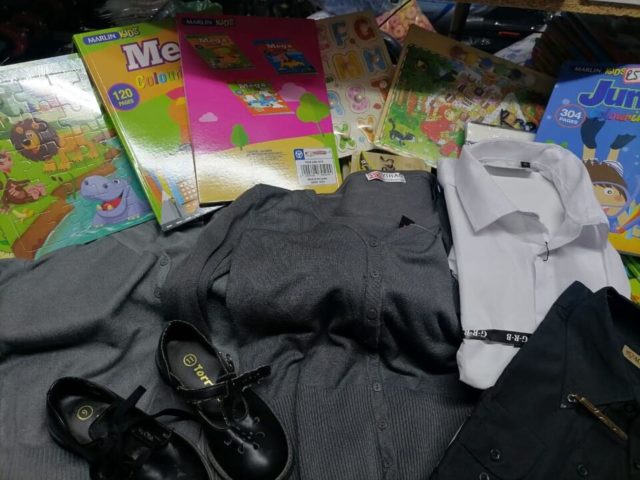With the 2022 academic year now under way, the Competition Commission of SA has urged school governing bodies, parents and the community to adhere to guidelines on school uniforms.
WITH the 2022 academic year now under way, the Competition Commission of SA has urged school governing bodies, parents and the community to adhere to guidelines on school uniforms.
The commission will take enforcement actions against schools and suppliers that continue to engage in anticompetitive conduct.
Parents who are getting their children into school are worried that they’ve had to pay too much for school fees and don’t need the financial pressure of having to pay exorbitant amounts for uniforms.
Calling on schools, school governing bodies and parents on the price of school uniforms and other learning-related materials, the commission said on Monday it was ready to “prosecute and push for penalties against suppliers and schools that engage in anticompetitive conduct”.
Spokesperson of the Competition Commission Siyabulela Makunga said the commission found that schools had concluded exclusive agreements with certain suppliers and that these contracts lasted for about 40-50 years and others were evergreen.
The commission also found that prices of school uniforms were significantly above economic costs.
On how this came to their attention, the commission said it received numerous complaints from parents about the high costs of school uniforms and this conduct was across private and public schools.
“In terms of the guidelines, schools are requested to ensure that their uniform is as generic as possible and that unique items are limited to very few and necessary items.
“Where schools wish to appoint a supplier for the unique items, they should do so through a competitive bidding process,” he said.
Makunga said in concluding agreements with such suppliers, schools should ensure that such contracts are no longer than 5 years and that there are regular review periods to ensure that the prices of the supplier are still affordable.
“Where feasible, schools should appoint more than one supplier in order to promote competition and competitive prices,” he said.
The Commission said it will continue to monitor compliance of schools together with the School Governing Body Associations with whom the Commission concluded MOUs (Memorandums of Understanding) in 2021.
Makunga said the guidelines set out to discourage the use of a single supplier or exclusive supplier approach.
“The guidelines call for school uniforms, which now also includes face masks and other personal protective equipment, to be as generic as possible.
“The exclusive supplier approach deprives consumers (parents) of the choice to shop where they prefer and afford and it often results in excessive prices due to lack of competition,” he said.
The guidelines also encourage schools to refrain from engaging in anti-competitive behaviour when procuring school uniforms and other learning-related goods and services and to ensure compliance with the Competition Act 89 of 1998 (the Competition Act), to promote an effective competitive environment that balances the interests of service providers and consumers.
Meanwhile, the commission has encouraged schools to sign an Undertaking to Comply with Competition Principles in School Uniform Procurement as a commitment to practice pro-competitive procurement.
Makunga said the commission continues to monitor compliance by the schools with the support of the school governing associations.
It is also relying on parents and the school community at large to report any non-compliance by schools or School Governing Bodies.
The commission will be rolling out a survey in the next few weeks to assess the level of compliance and will take enforcement action against schools that continue to engage in anti-competitive conduct in defiance of the guidelines on school uniforms.
With several complaints coming in, Makunga emphasised the commission will investigate each complaint it receives and will take a decision on the actions to be taken based on the outcomes of its investigation.
Once the Competition Tribunal issues an order, parties are required to comply with the terms of such order
Sunday Independent








